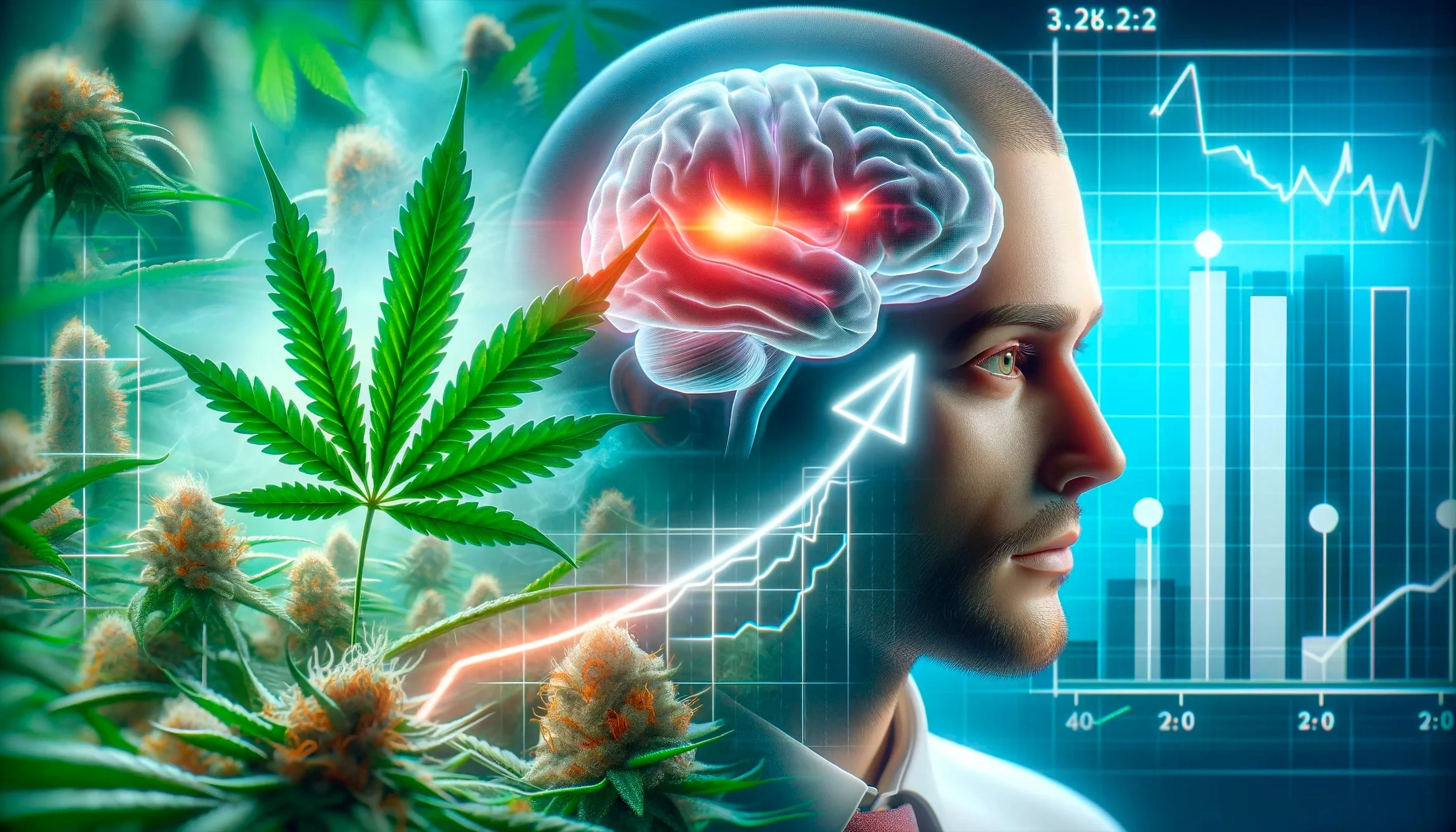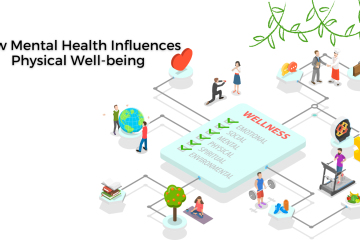In the US, 15% of adult patients are prescribed drugs to treat mental health conditions. Given that cannabis is one of the most widely used drugs in the nation and that almost 50 million Americans have tried it at least once, it is likely that a significant portion of them also use it.
Although many people use cannabis, is it safe to combine it with mental health medications? In the end, it comes down to the kind of drug you’re taking and how your body reacts to it. It’s advised to consult an online marijuana doctor if you intend to combine marijuana and certain psychiatric medications because research suggests that the two may have significant interactions.
Overview of Common Psychiatric Medications
Four primary categories of prescription drugs are available for treating psychiatric disorders: antidepressants, stimulants, antipsychotics, and anti-anxiety medications.
● Antidepressants
Reuptake inhibitors, the most popular class of antidepressants, function by reducing the rate at which specific neurotransmitters—chemicals found in the brain—are reabsorbed by the brain. Serotonin-norepinephrine reuptake inhibitors (SNRIs), norepinephrine and dopamine reuptake inhibitors (NDRIs), and selective serotonin reuptake inhibitors (SSRIs) are a few examples.
SSRIs are the kind of antidepressants that are most frequently prescribed. As the name implies, these drugs work with the body to raise serotonin levels in the brain, which helps reduce the symptoms of depression. One neurotransmitter that is important for mood regulation, happiness, and pleasure is serotonin.
● Anti-anxiety Medications
A common class of drugs called benzodiazepines is used to treat a variety of ailments, such as generalized anxiety disorder and insomnia. Benzodiazepines include, among others, Klonopin, Halcion, Xanax, and Valium.
Through the enhancement of gamma-aminobutyric acid (GABA), a neurotransmitter, benzodiazepines function as mood stabilizers. Enhancing GABA has a calming, sedative effect on the body because it slows down the central nervous system.
● Stimulants
The common treatment for attention-deficit hyperactivity disorder (ADHD) is prescription stimulants. Stimulants raise dopamine and norepinephrine activity, which in turn increases alertness, attention, and energy.
Atypical antidepressants, such as bupropion (Wellbutrin), are also occasionally prescribed for ADHD in an effort to reduce hyperactivity, enhance attention span, and manage impulsivity.
● Antipsychotics
Antipsychotic drugs are used to manage psychosis-related symptoms. Delusions, hallucinations, mania, and paranoid thinking are a few manifestations of psychosis. Mental health issues like schizophrenia, bipolar disorder, and personality disorders are frequently linked to these symptoms.
How Cannabis May Interact With Antidepressants
Two of the main cannabinoids found in cannabis, THC and CBD, may slow the metabolism of selective serotonin reuptake inhibitors, which include Lexapro, Prozac, Zoloft, and Celexa. These drugs are all frequently prescribed to treat depression.
Adolescent research indicates that the co-administration of medicinal marijuana and these drugs may elevate the body’s concentration levels, consequently raising the possibility of adverse effects.
However, some people discover that using cannabis in addition to SSRIs reduces their side effects, providing greater relief. Remember that extremely high dosages of SSRIs and cannabis can cause serotonin syndrome, which is characterized by dangerously elevated serotonin levels in the brain.
If you currently take SSRIs and marijuana for medical purposes, be advised that abruptly stopping or reducing your cannabis intake may also cause your medication’s concentrations to drop, which could worsen your depressive symptoms. If you use marijuana for medical reasons, you should also have a medical card since it will protect you from facing legal issues. If you don’t already have one, you can apply for a medical card online while seated at home using a smartphone.
It’s also critical to remember that different depression medications have distinct risk factors. Tricyclic antidepressants, for instance, affect different bodily systems and may interact differently with cannabis.
The Interaction Between Cannabis and Anti-Anxiety Medications
Benzodiazepines and other anti-anxiety medications slow down messages between the brain and body, which depresses the central nervous system. Cannabis has the ability to depress the nervous system, which can result in feelings of relaxation, sedation, and decreased anxiety.
Researchers continue to learn about the possible negative effects of cannabis and benzodiazepines together. Combining the two in small doses may reduce anxiety and encourage relaxation, according to anecdotal evidence.
Additional research indicates that there may be a decrease in the need for benzodiazepines, which have a high risk of addiction, when medical cannabis is used in conjunction with anti-anxiety medications. According to the study, 45 percent of patients who took both medications for a full six months eventually stopped taking benzodiazepines.
However, taking large amounts of these or smoking marijuana that is high in THC may have the opposite effect and exacerbate irritability, stress, and paranoia. It’s best to discuss the advantages and disadvantages with your doctor because the effects differ depending on the individual and the dosage.
The Impact of Cannabis on Stimulant Medicines
In order to improve attentiveness and focus, prescription stimulants are used. They are frequently prescribed to assist in managing ADHD symptoms. Prescription stimulants that are frequently used include Ritalin, Concerta, Dexedrine, Adderall, and Focalin.
Although there’s still a lot we don’t know about the effects of mixing stimulants and cannabis, early research points to potentially unpredictable outcomes. This is partially because cannabis has the ability to function as both a depressant and a stimulant.
According to some research, the combined effects of stimulants and marijuana on the nervous system may cause an increase in heart rate.
Other research, however, suggests that combining the two may help improve ADHD symptoms and lessen reliance on ADHD medications. For the treatment of ADHD symptoms, terpenes such as limonene and cannabinoids such as cannabinol may be especially beneficial.
If you are more likely to experience negative effects, consult a physician before combining marijuana with stimulants. People who already have heart problems, for instance, may be more susceptible to heart strain.
The Interaction Between Cannabis and Antipsychotic Medications
It is thought that a dopamine imbalance contributes significantly to psychosis and psychotic disorders. For this reason, a lot of antipsychotic drugs block the brain’s dopamine receptors. Due to its effects on specific cannabinoid receptors (CB1 receptors), cannabis can also affect dopamine. This means that some antipsychotics may interact with cannabis or lose some of their potency.
Medical marijuana can reverse the neurobehavioral effects of antipsychotic medications and lower their concentration in the brain, according to research on animals. Additional studies conducted on human populations have shown that cannabis use decreased the effectiveness of antipsychotics, which led to schizophrenia patients’ treatment failing.
The likelihood of adverse effects like confusion, drowsiness, dizziness, and cognitive impairment increases when the two drugs are combined. Before mixing cannabis and antipsychotic prescriptions, patients taking Zyprexa, Clozaril, Seroquel, or Risperdal should speak with their doctors.
Ending Words!
There is a dearth of precise information regarding cannabis’s interactions with popular psychiatric drugs. Due to similar brain pathways, it is evident that cannabis can either amplify or decrease the effects of psychiatric medications.
High-THC products should not be used by people who suffer from schizophrenia or are prone to psychosis.
See a doctor first if you take or intend to take medication for a mental health condition in addition to medical cannabis. It’s likely that those who use high-potency cannabis products will need to take fewer antidepressants in order to minimize the possibility of adverse side effects.



